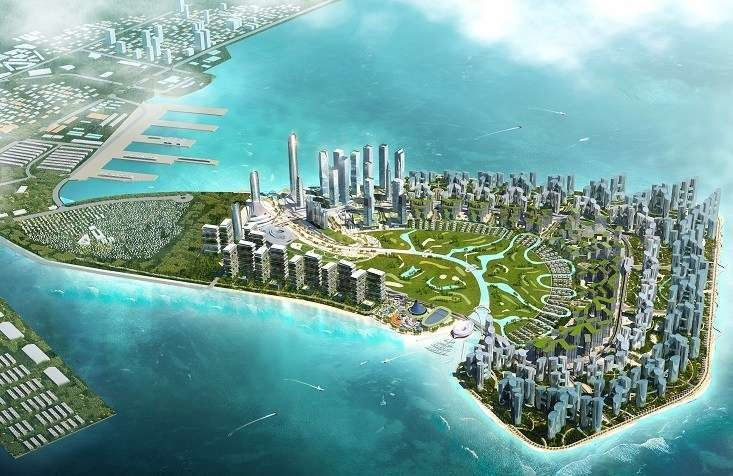We Need a Circular Fishing Economy
- Jun Hong Park

- Aug 5, 2019
- 3 min read

Since the 1960's, the global human population has doubled and so has the per capita fish consumption from 22 pounds per person per year to 44 pounds. Fish are an important source of protein and human demand for fish will continue to grow. Since the 1960's major fishing nations have launched huge fleets of industrial scale fishing. The scale of industrial fishing is depleting the oceans of fish at an alarming rate. Already, 90% of fish stocks are over-fished, leading to some catastrophic outcomes. Tuna is no longer legal to fish in the Atlantic, and stocks of three tuna species are at 3-7% of their pre-industrial levels.

Aquaculture has stepped in to meet growing demand for fish with large scale fish farms that supply over 80% of fish consumed in developed nations. The scale and sophistication of aquaculture to meet human demand for fish will continue to grow, as will the capabilities of nations to withdraw ever more amounts of wild caught fish until almost all fish stocks are completely depleted and the oceans suffer major ecosystem collapse. Human history of resource consumption shows few examples of sustainability and most often shows trends of over-consumption to the point of extinction.

One response to over-fishing has been a good effort to control Illegal Fishing, which accounts for almost 45% of all fish caught in the wild. Global Fishing Watch has deployed technology to track over 60,000 fishing boats and develop AI algorithms to identify signs of illegal fishing behavior. Unfortunately, criminals are smart and have learned to hide their illegal activities from electronic tracking. This has led many to explore using satellite images to identify illegal fishing vessels. But satellites rarely image the open ocean, and finding illegal fishing vessels in the act of fishing in the open ocean is technically challenging and expensive.

In most advanced nations, law enforcement officials are able to detect and prosecute less than 20% of all crimes committed. In the open seas, where few nations have navies capable of patroling open waters, interdiction might be less than 1%, and collecting sufficient evidence to bring illegal fishing boats to court could take years. We could expect 3-5 enforcement actions per year, which would hardly dent the vast amount of illegal fishing.

Another good approach has been to use Blockchain technologies to instrument global fish supply chains to verify legal catches from boat to table. Some fish suppliers already have barcode based tracking systems that provide provenance through parts of the supply chain. To instrument the entire global fish supply chain across all the major fishing fleets would be an expensive proposition and that expense would be passed on to consumers through higher fish prices. Higher fish prices create greater economic incentives for illegal fishing, and even the most robust supply chains can be corrupted.

I've looked at these issue for more than a year and have concluded it is impossible to halt the decline of global fishing stocks by controlling demand. Declining fish stocks are a Supply Challenge.
We need more fish.
I believe a Circular Economy approach to industrial fishing is the only way to ensure growing fish stocks for future human consumption and healthy marine ecosystems.

We need to more than replenish what we take. This will require that global fishing fleets invest in industrial fish spawning factories to replenish the fish stocks their fleets deplete each year. Some species like Tuna take years to grow to sizes that can be legally caught so it may take some time to regrow fish stocks. But this should not dissuade us from exploring ways to artificially regrow fish stocks in the wild.
Loggers replant trees when they clear forests. Fishing fleets can replace what they take. It may sound like a radical proposal, but we are out of time for incremental solutions. Unless we make radical changes in the way we withdraw natural resources from the oceans in the next ten years, our generation will be the last that consumes wild fish.

Yes, we will reap what we sow. For 6 decades humans have taken resources from the earth thinking the riches were limitless. They are not limitless. We can see the end. We need to change course and use our technology to artificially increase biodiversity and bring global fish stocks back to pre-industrial levels to ensure a vibrant Blue Economy and healthy marine ecosystems.
We owe it to ourselves and the ocean. Governments and the UN should step up now to begin piloting spawning programs and developing regulations and inspection regimes to radically increase the supply of wild fish stocks. We could start with Tuna in the North Atlantic.


Comments